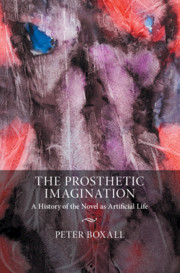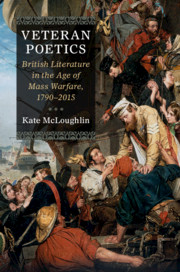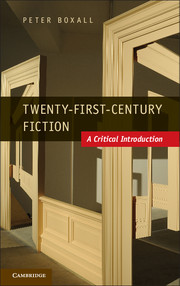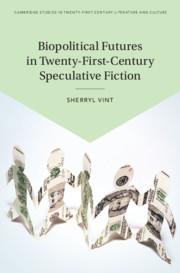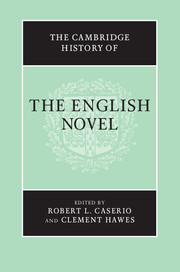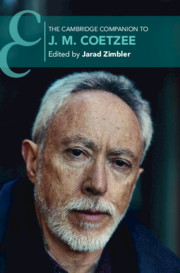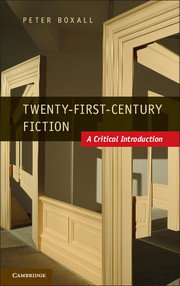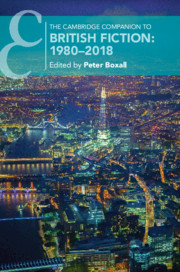The Prosthetic Imagination
A History of the Novel as Artificial Life
- Author: Peter Boxall, University of Sussex
- Date Published: August 2020
- availability: This ISBN is for an eBook version which is distributed on our behalf by a third party.
- format: Adobe eBook Reader
- isbn: 9781108877589
Find out more about Cambridge eBooks
Adobe eBook Reader
Other available formats:
Hardback
Looking for an inspection copy?
This title is not currently available on inspection
-
In The Prosthetic Imagination, leading critic Peter Boxall argues that we are now entering an artificial age, in which our given bodies enter into new conjunctions with our prosthetic extensions. This new age requires us to reimagine our relation to our bodies, and to our environments, and Boxall suggests that the novel as a form can guide us in this imaginative task. Across a dazzling range of prose fictions, from Thomas More's Utopia to Margaret Atwood's Oryx and Crake, Boxall shows how the novel has played a central role in forging the bodies in which we extend ourselves into the world. But if the novel has helped to give our world a human shape, it also contains forms of life that elude our existing human architectures: new amalgams of the living and the non-living that are the hidden province of the novel imagination. These latent conjunctions, Boxall argues, are preserved in the novel form, and offer us images of embodied being that can help us orient ourselves to our new prosthetic condition.
Read more- Identifies a new period in the history technological embodiment, offering the fullest account to date of the role of the imagination in responding to new forms of artificial life
- Provides a response to contemporary theoretical developments and retheorizes the role and value of the novel, after the waning of postmodernism
- Provides a long historical sweep, allowing the book to offer a comprehensive picture of the novel as a form, at a transitional moment in the history of literary criticism
Awards
- Winner, 2024 James Russell Lowell Prize 2021, Modern Language Association
Reviews & endorsements
'The Prosthetic Imagination is at once a majestic work of literary history and a formidable work of conceptual criticism. Through readings that display striking range and agility, Peter Boxall reconstructs the formal and historical development of the novel as the development of artificial life. Moving from More to Beckett, from Cervantes to Bolaño, this book delineates a remarkable genealogy for the interrelation of prosthetics and novelistic aesthetics, showing how fiction's philosophical entanglements with the body have informed its conditions of possibility.' David James, University of Birmingham
See more reviews'This is a dazzling study of the prosthetic imagination in prose fiction, the logic which does not refer to the world but produces it. Boxall's thesis entails an entire re-reading of the novel's history as well as the abandonment of realist criteria. Biotechnology and the idea of replacement, the 'seam' that connects imagination to its material extension, shape the novel from the start, from More to Modernism, from Cervantes to Eliot. The wonderful juxtapositions, More and Asimov, Hobbes and Timothy Clark, Goethe and Kleist, Dickens and Agambon, constantly surprise. Central to this study is a brilliant reading of the hand and its social and biological roles. Just as certainly as the prosthetic affirms the novel's artificial life, so it brings death into the fictional world.' Isobel Armstrong, University of London
'The Prosthetic Imagination is a major book: it does nothing less than to rewrite Erich Auerbach's Mimesis as an epic struggle between consciousness that materializes as information and material that resists that transformation. By thus reframing the history of the novel in terms of the changing relation between prothesis and mimesis, this account does what none other has - which is to reveal, in an extraordinary range of novels, the dialectical potential that pushes past the juncture where thought materializes in and as the world. Boxall has convinced me that we are seeing now nothing less than a shift from material embodiment to information as the basis of 'shared being' – a shift which requires 'a different universe of thought'.' Nancy Armstrong, Duke University
'In The Prosthetic Imagination Boxall … reveals his impressive breadth of acquaintance with novels, from Thomas More's Utopia (1516) to books of the 21st century.' G. W. Clift, Choice
'Peter Boxall's rich and often exhilarating The Prosthetic Imagination offers an ambitious theory of the novel as well as a wide-ranging (if largely AngloAmerican) history of it, from Thomas More to Don DeLillo … a tour de force.' Ian Duncan, Modern Philology
'… a fine achievement that recasts the history of prose fiction from the perspective of the relationship between the living and the non-living, the human and the natural, the natural and the artificial … an original and penetrating contribution …' Sandra Guardini Vasconcelos, Modern Language Review
Customer reviews
Not yet reviewed
Be the first to review
Review was not posted due to profanity
×Product details
- Date Published: August 2020
- format: Adobe eBook Reader
- isbn: 9781108877589
- availability: This ISBN is for an eBook version which is distributed on our behalf by a third party.
Table of Contents
Introduction. Mimesis and prosthesis
Part I. The Body and the Early Modern State: From More to Cavendish:
1. Fiction, the body and the state
Part II. The Colonial Body: From Behn to Goethe:
2. Economies of scale from Aphra Behn to Sarah Scott
3. Organic aesthetics from Richardson to Goethe
Part III. The Manufactured Body: From Wollstonecraft to Stoker:
4. The dead hand: realism and biomaterial in the nineteenth-century novel
5. Strange affinity: Gothic prosthetics from Shelley to Stoker
Part IV. The Modernist Body: From James to Beckett:
6. A duplication of consciousness: realism, modernism and prosthetic self-fashioning
7. All twined together: prosthetic modernism from Proust to Beckett
Part V. The Posthuman Body: From Orwell to Atwood:
8. Prosthetics and simulacra: the postmodern novel
9. Prosthetic worlds in the twenty-first-century novel.
Sorry, this resource is locked
Please register or sign in to request access. If you are having problems accessing these resources please email [email protected]
Register Sign in» Proceed
You are now leaving the Cambridge University Press website. Your eBook purchase and download will be completed by our partner www.ebooks.com. Please see the permission section of the www.ebooks.com catalogue page for details of the print & copy limits on our eBooks.
Continue ×Are you sure you want to delete your account?
This cannot be undone.
Thank you for your feedback which will help us improve our service.
If you requested a response, we will make sure to get back to you shortly.
×
